In this Article
Motherhood is one of the most wonderful experiences in a woman’s life, but this phase may turn into a nightmare if your baby cries incessantly on a regular basis. In most cases, the reason for this frantic crying is colic – this can make your baby cranky and fussy.
Colic usually affects babies a few weeks after birth – 2 weeks to be precise – and in most cases, it subsides as they grow older (about 3 or 4 months of age). The crying bouts usually occur during late afternoons or evenings, and the symptoms may include high-pitched wails, clenched fists, a tense body, knees towards the tummy, etc. If your baby has colic, it may be because of your food choices. Generally, women eat whatever they want to post-pregnancy, but if your baby has colic and his condition is not improving, you must assess your food choices. Excluding certain foods from your diet can improve your baby’s condition.
Why Should a Nursing Mother Avoid Foods That Cause Colic?
Your baby’s solitary source of nutrition up until six months of age is almost always breast milk. What you eat indirectly affects his health. Sometimes, your little one can be intolerant to certain food items that you may be consuming, and under such circumstances, your baby may suffer from colic. Therefore, you may need to identify the foods that cause colic in babies and remove them from your diet.
Foods and Drinks to Avoid While Breastfeeding a Colicky Baby
As a breastfeeding mother, you will have to be extra careful and avoid the following foods in your diet. This is because traces of these foods and beverages can enter your baby’s system through the breastmilk he consumes. It may cause gas troubles and bloating, which may make him uncomfortable and colicky.
1. Aerated Beverages
Do not consume aerated drinks while breastfeeding your baby as such drinks can increase toxins in your body, which in turn can affect your baby’s health. Instead, opt for natural fruit juices or lemonades.
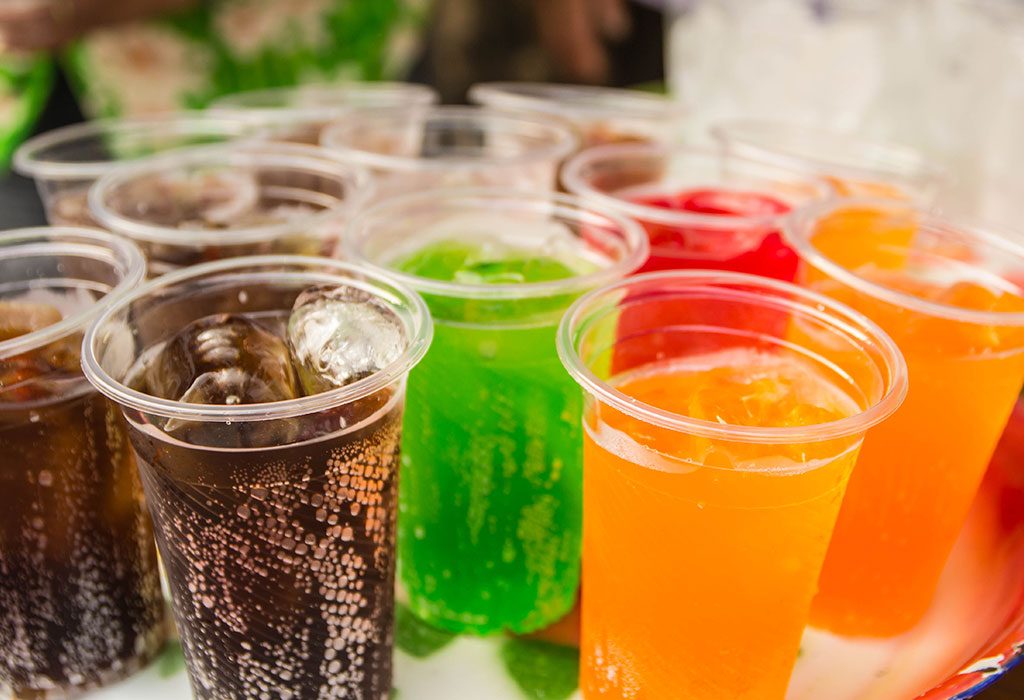
2. Caffeinated Beverages
Tea and coffee or any kind of caffeinated beverages are known to cause gas and bloating. Consuming caffeinated beverages may result in gas and bloating in your baby, which can make him cry. However, if you cannot go without tea or coffee, consult your doctor about the quantity you can drink.

3. Legumes
Including certain kinds of legumes such as kidney beans, soy, etc. may cause excessive gas in babies, leading to discomfort and colic.
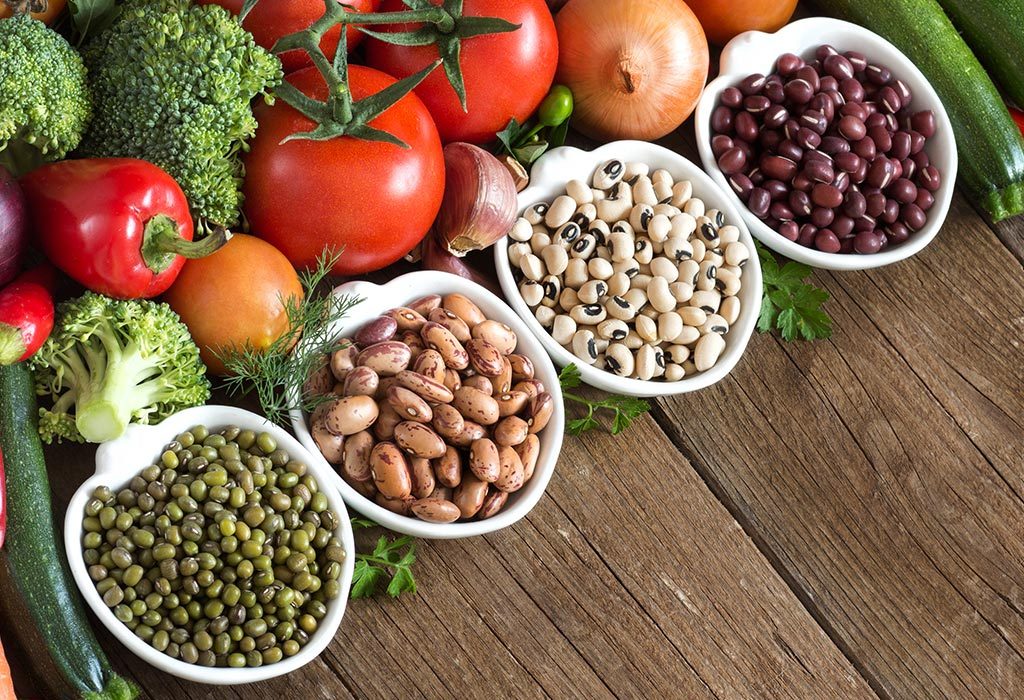
4. Energy Drinks
Control your urge to consume energy drinks while breastfeeding, as these drinks can affect your baby’s health adversely due to the presence of chemicals and preservatives that accumulate in your body. These then get passed on to your baby, leaving him uncomfortable.
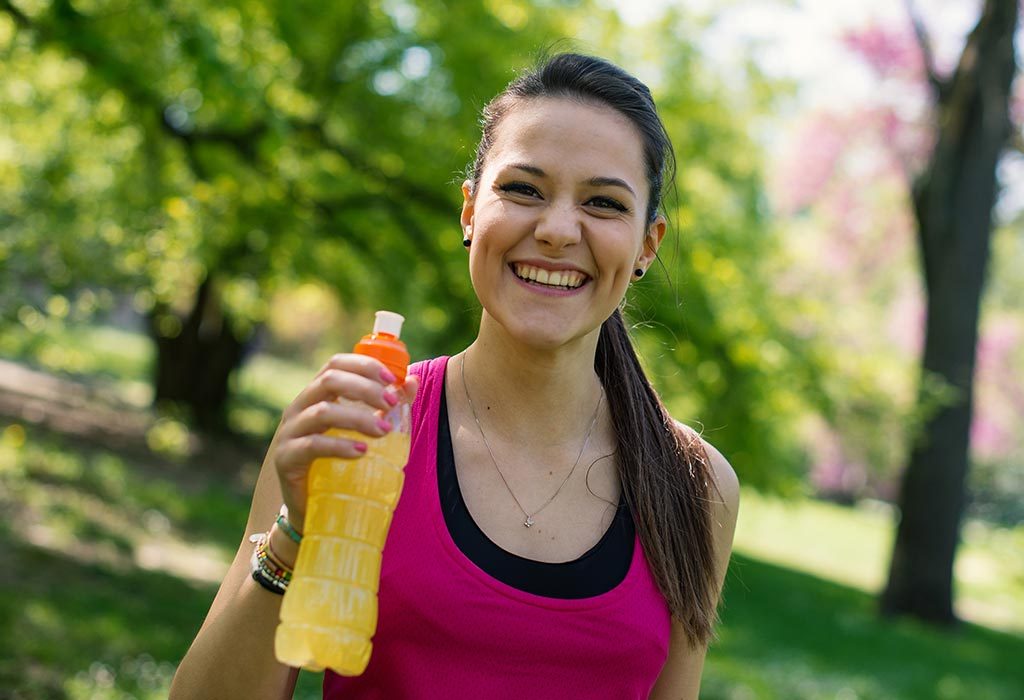
5. Hot and Spicy Food
Hot and spicy foods are enjoyed by many. However, it is a good idea to stay away from such foods items during breastfeeding as they could bring about changes in the flavour of the breast milk and trouble the baby’s digestive system.
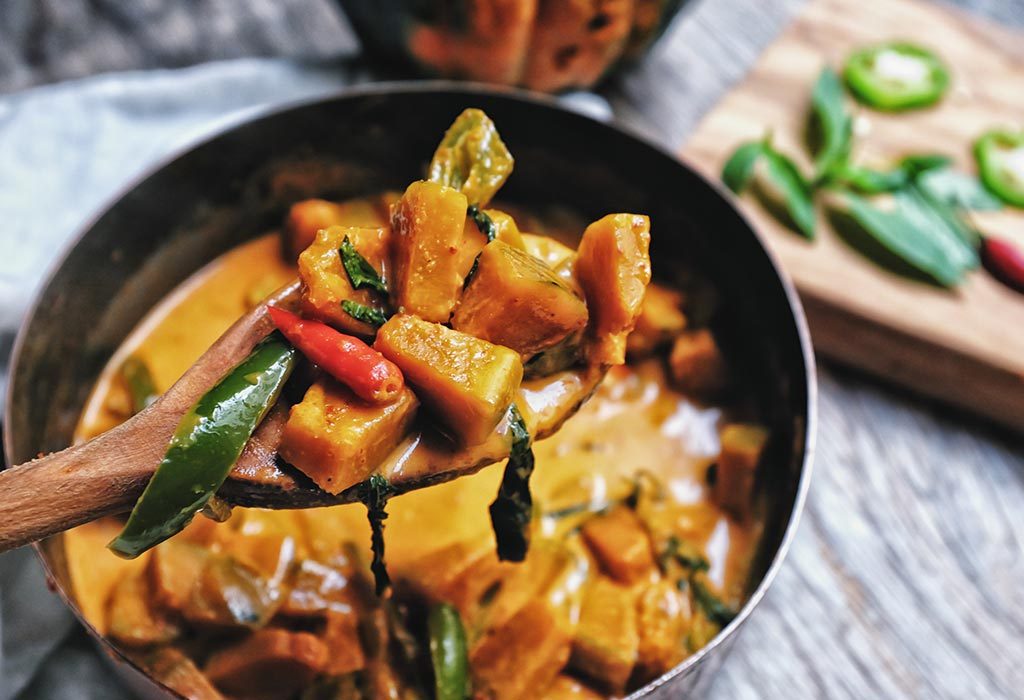
6. Junk Food
Junk food is not only low in nutrition but also bad for the health of your baby because of all the preservatives it carries. Consuming it on a regular basis can affect you and your baby’s digestive system and lead to colic and other harmful health conditions.
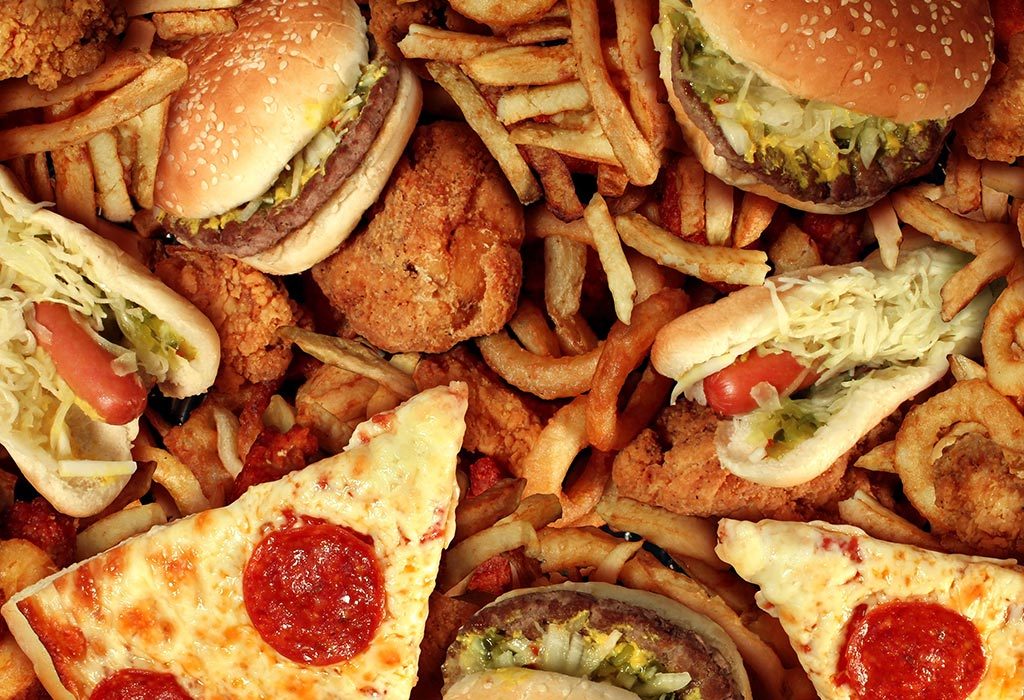
7. High Amounts of Dairy
Many newbie mommies are told that consuming a lot of milk may help in increasing milk production; there is no evidence to prove that. On the other hand, more amounts of dairy products may lead to digestion issues for the mother and may cause colic in babies.
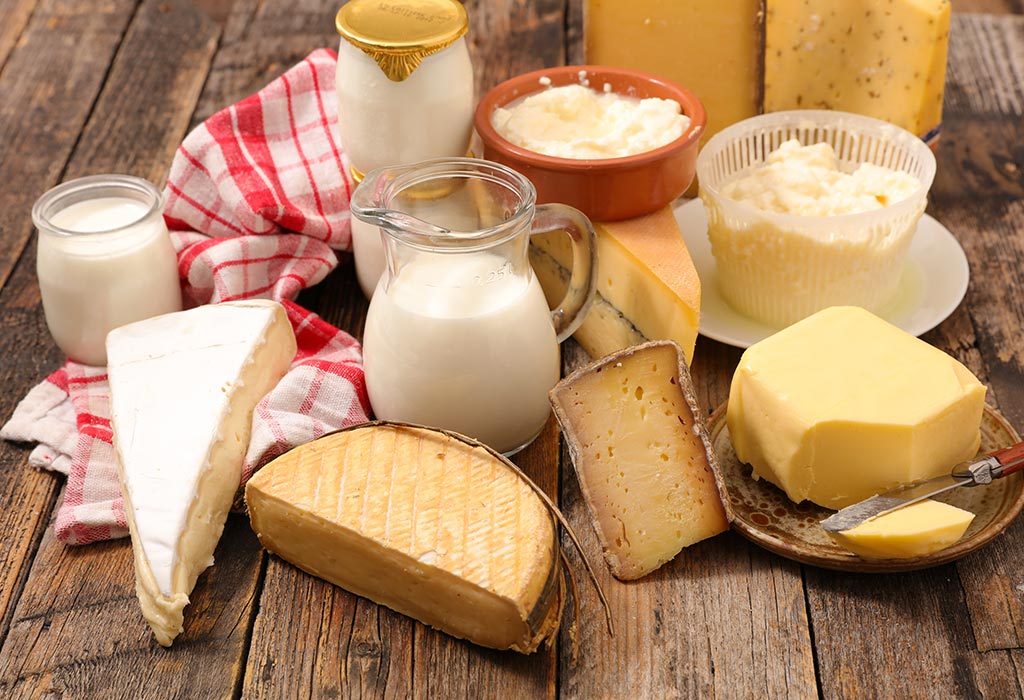
8. Consuming Nuts
Nuts are a good source of protein and fats, but consuming some variety of nuts such as almonds and cashew nuts may lead to the formation of gas and tummy problems in infants.
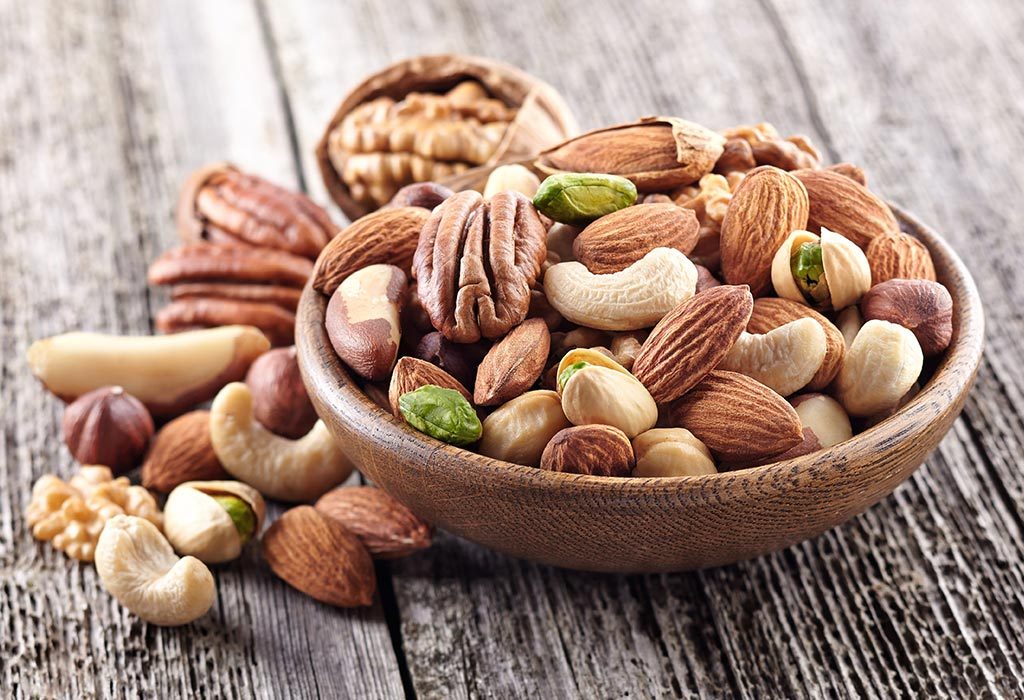
9. Eggs
Eggs are a nutritional powerhouse. However, consuming egg whites may lead to gastric troubles in babies.
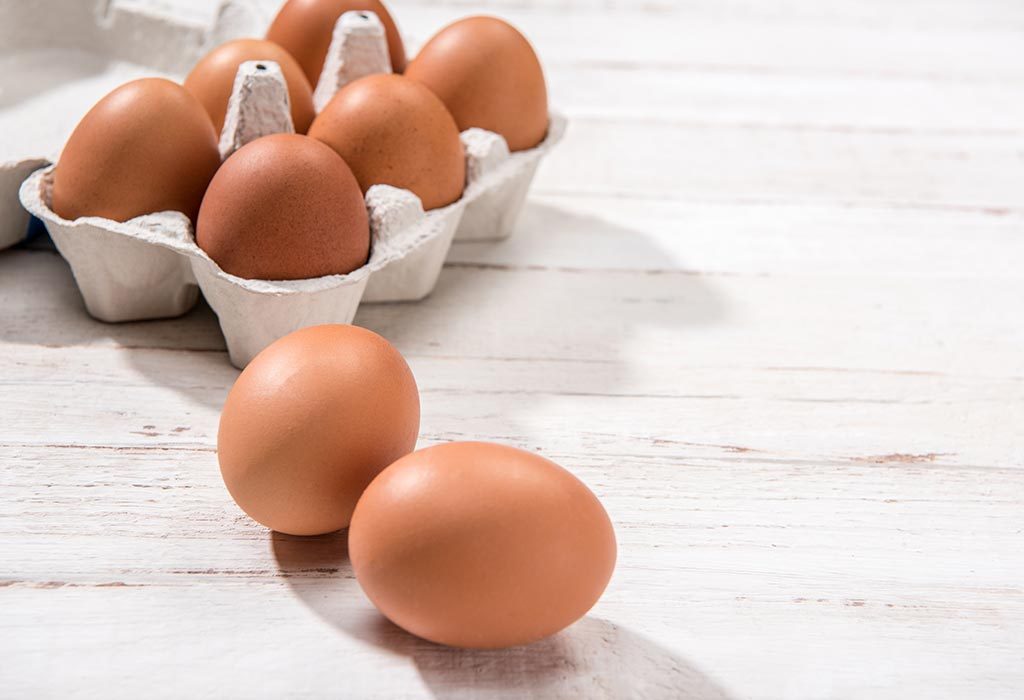
10. Eating Certain Vegetables
There are certain vegetables that may trigger colic in your baby due to improper digestion and accumulation of gas in the stomach, leading to intense pain. Some of these are cruciferous vegetables such as broccoli, cauliflower, cabbage, etc.
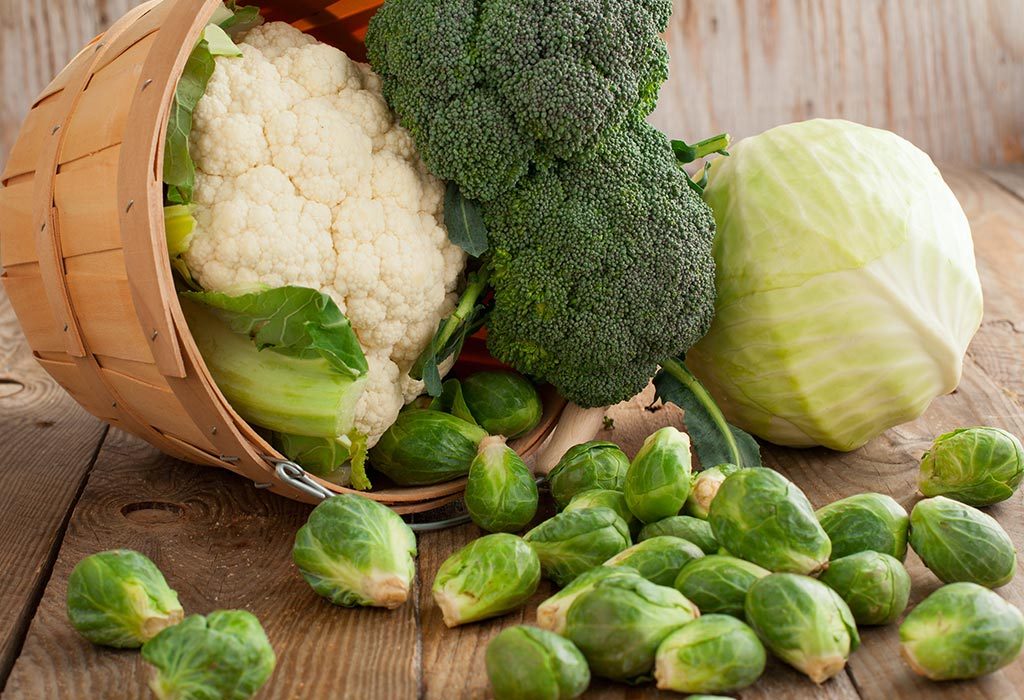
You may ask your doctor about an anti-colic breastfeeding diet to reduce the symptoms of colic in babies.
Tips to Prevent the Onset of Colic in Infants
As a parent, you may find it disheartening to see your little one in pain and you may want to try everything to soothe or comfort him. Here we have some tips that may help in preventing colic in babies:
- Give smaller amounts of breast milk to your baby at regular intervals as it may help your baby digest the milk better.
- You may ask your doctor to help you decide the best diet for breastfeeding mothers to prevent colic in your baby. Exclude all the triggers from your diet.
- Refrain from including caffeinated beverages or dairy products in your diet. If you have to, limit their intake or ask your doctor about the ideal intake.
- There are herbal supplements available that you may consider taking in order to reduce the occurrence of colic in your baby.
We recommend that you consult your doctor and decide what you want to do to help get rid of colic in your baby.
When to Consult a Doctor
Though most cases of colic are easily manageable, sometimes you may need to consult your baby’s doctor. This may happen when you notice your baby experiencing diarrhoea, vomiting, or other such alarming symptoms.
For the well-being and the optimal growth and development of your baby, it is important that your baby is fed properly – breast milk one of the best ways of providing nutrition to your baby. However, sometimes as a new mommy, you may experience various challenges while feeding your baby. But with proper assistance and medical intervention, you may overcome these challenges.
Resources and References: WebMD









